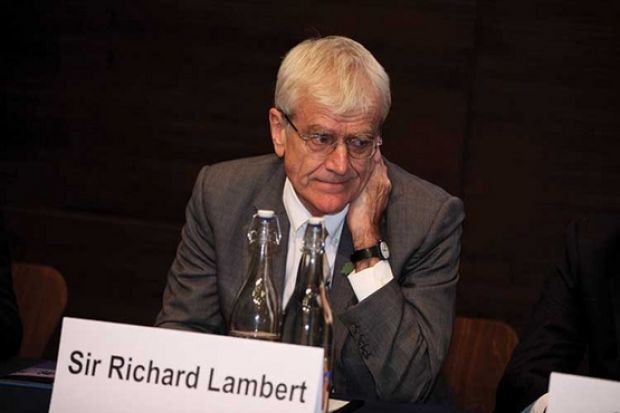Growth advice: innovation is key
UK universities must improve the way they collaborate with small businesses or risk stifling national productivity, an expert has warned.
Sir Richard Lambert, former director general of the CBI and current chancellor of the University of Warwick, said UK institutions had fallen behind their European neighbours in terms of how they engage with small companies, thus jeopardising innovation.
Speaking at the Global University Summit 2013, Sir Richard said it was “much easier” for large firms to collaborate with UK universities because “they know where the talent is, they know about intellectual property protocols…It’s a much harder story to reach out to smaller firms, partly because [they] tend not to know where the front door of the university is, partly because they have been so busy keeping alive in difficult times that they haven’t had the time to go and look for research efforts.”
He told Times Higher Education that if more small and medium-sized enterprises engaged with higher education, the UK would “move up the innovation league tables”, adding that innovation is “the key to productivity growth”.
“If you look at the UK and compare it with Germany or France, you see there is less engagement by small firms with universities,” he noted.
Sir Richard urged institutions to look at ways to encourage interaction, praising Aston University for the development of a scheme that allows SMEs to apply for up to £5,000 worth of vouchers to fund collaboration with academics.
The scheme was rolled out nationally by the Technology Strategy Board last October.
“The government also has a role to play,” Sir Richard added, saying that it was “very important that the Higher Education Innovation Fund is sustained” and not subject to cuts.
He also called on less receptive small companies, which were “not energetic enough” in their efforts to collaborate, to “wake up and smell the coffee”.
Listen to our podcast from the Global University Summit 2013.





